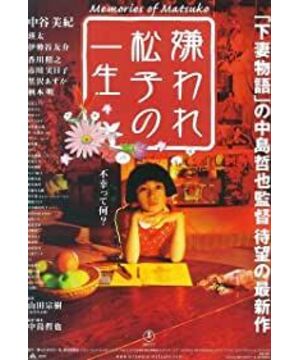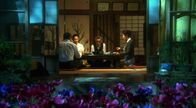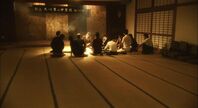All the days we pass are under your wrath; our years are like a sigh.
The years of our life are seventy years old, and if we are strong we can reach eighty years old, but all we can boast about is toil and sorrow, and in an instant we fly away.
The suffering in life is always endless, from beginning to end, coexisting with human life in a way that penetrates into the bone marrow.
Under such powerful suffering, it would have been a natural choice to die.
But people are born with a survival instinct called hope.
Hope has a lot of by-products, like it makes people believe in the value of suffering, because if suffering has no value, then why do we suffer?
But the truth is, we have to live with it.
Like movies, we face the most disgusting sins and sufferings every day, but we have to put on funny expressions on ourselves, add all kinds of strong colors to the boringness of the world, and even distort the tragic past into memory. comedy.
But this is not a hypocrisy, it is a source of helplessness.
I don’t know when it started, we were told this truth from childhood, life is beautiful and full of hope, we have to reach out and grab that star in the sky. This is kindness from this world.
But when we embrace it, when we become adults, and go out into the world, we realize that this is not the case.
Happiness in this world is short-lived, and most of the time is filled by suffering.
We don't think it's possible that we are protected by someone important around us and haven't stepped up the steps alone.
Romans says: We know that all creatures groaned and labored together until now.
Some people conduct character analysis on Matsuko, thinking that what she does will be better, and that she is too dependent on others, which leads to her own tragedy.
Thinking this way, I actually didn't notice the director's allegorical style.
Matsuko's life is a pursuit and a regret. It can be said that it was a failure, but he lived it earnestly.
The director put his admiration into this tragedy. He believes that our helpless but wonderful life is paved with flowers.
At the end of the film, the chorus of everyone together makes it clear: this is not the life of Matsuko, but the life of each of us.
Who among us is not pine nuts?
We are full of hope, beaten by suffering, covered in scars, almost despairing, but driven by the instinct of hope to continue to survive.
Where is the answer?
Maybe we haven't thought of it yet, or maybe it doesn't exist at all,
or maybe the answer is just something that accompanies us on the road,
or maybe the truth is somewhere we can't see but believe...
People choose different paths, but this It's all our own choice.
In fact, our wish is very simple, a father who can smile at himself, a complete family, and a sister who loves and is deeply loved by himself.
So little of us, walking down the long stairs, bent over and stretched out our hands, trying to catch the stars in the sky.
The stars in the sky are always outside our fingertips, so just like in the movie, we pass by,
with similar but different ideals, walking similar but different roads, singing the same song, playing this The symphony of the world.
--------------------------------------------
In the end, it's negative or positive Let me add some more meanings:
In my opinion, facing the suffering of this world and the nature of suffering in life is not decadence, but a kind of bravery.
From the director's point of view, he uses Matsuko's hand to tell the essence of life as a struggle between despair in suffering and innate hope, which is actually a kind of honesty.
This work, I think, is completely different from the style of "Disqualification in the World".
Not disgust, not despair. But "even if the world is full of pain, everyone is trying to survive".
The film celebrates this truth itself poetically and aesthetically.
I think this is a thorough and strong idea. Because no matter what, this paradox of pain and despair is inescapable.
And the author tells us to live with these burdens.
View more about Kiraware Matsuko no isshô reviews










